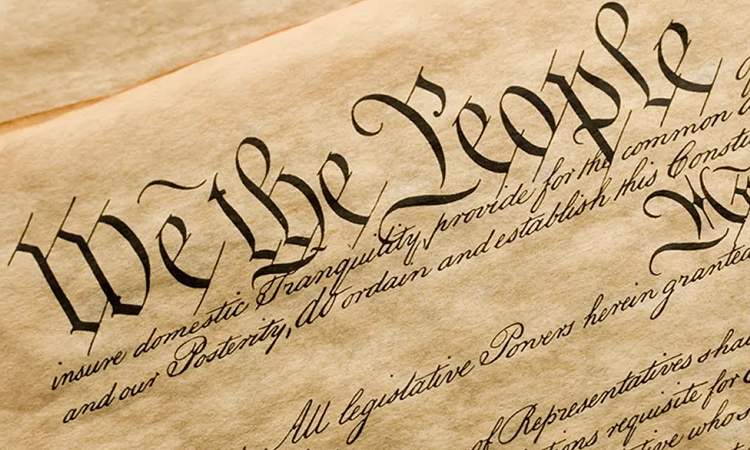A watershed day.

You probably missed it but Wednesday (Sept. 17) was Constitution Day. It was the 238th anniversary of the day that 39 of the 55 delegates to the Constitutional Convention in Philadelphia declared their work finished (or as finished as they could get it given a number of unresolved issues). They signed their names to the document that would go on to become the Constitution of the United States of America.
They then sent the document over which they had argued and debated for five sweltering months in Philadelphia for ratification by the then existing 13 states.
On that day in 1787, very nearly every human being on earth lived under the despotic rule of some sort of king, emperor, sultan, or potentate. As it had been since humans emerged as a species, life under the rule of a tyrant was the default state of mankind.
The document that those men in Philadelphia signed 238 years ago was a radical departure. For the first time in history, the sovereignty of the individual – the right of a person to order his or her own affairs as that person saw fit – was formally recognized. What’s more, for the first time in history, it was acknowledged that fundamental rights and freedoms flowed not from government but instead from the creative act of a sovereign God. The U.S. Constitution was revolutionary in that it established citizens as being sovereign over government with God being sovereign over all.
The world has not been the same since.
I fully stipulate that the Constitution isn’t perfect. But that stipulation is followed by the stipulation that the nation and society that the Constitution created has lifted more people out of the hopelessness of poverty and freed more people from the chains of bondage than any other nation or society in all of history.
The creation of three co-equal branches of government, each checking the power and reach of the other two, and the structural existence of frequent elections, empowers ordinary citizens in ways that were never before seen.
So, though few of us actually observe it, it is nevertheless a good thing that we recognize Constitution Day every Sept. 17.
And while it is appropriate to celebrate the Constitution every year, prudence demands that we acknowledge that it is under assault. The far-left wing of today’s Democratic Party will, if they can, scrap it altogether in favor of a bigger, more powerful, less constrained national government.
But at least they’re out in the open about it. More insidious is the bloated administrative state that incrementally and relentlessly strips away the individual sovereignty that animated the Constitution’s authors in favor of a command-and-control mode of government. Worse yet is a lazy and derelict Congress that farms out its legislative role to regulation-writing bureaucrats.
These things, as much as anything else, stand at the root of most of our national problems.
It’s not clear that we can ever fully return to constitutional adherence as envisioned by the Founders.
It is clear, however, that we should try.








With all the talk of Texas secession, it strikes me as odd that political subdivisions of the United States that have adopted anti-Constitutional policies in violation of the conditions that allowed them to join the Union aren’t expelled. You can’t tell me that the residents of NY City are all about the American spirit of independence. They still want all of the trappings, though. Am I the only one who finds that a little amusing?
After the Constitutional Convention, Franklin was approached by some who asked what they had done. He supposedly replied: “We have given you a constitution if you can keep it”. No one ever said the task would be easy; however, it was a brilliant document. We have many great Americans who have been and are today up to the task. May the grace of God be with our country.